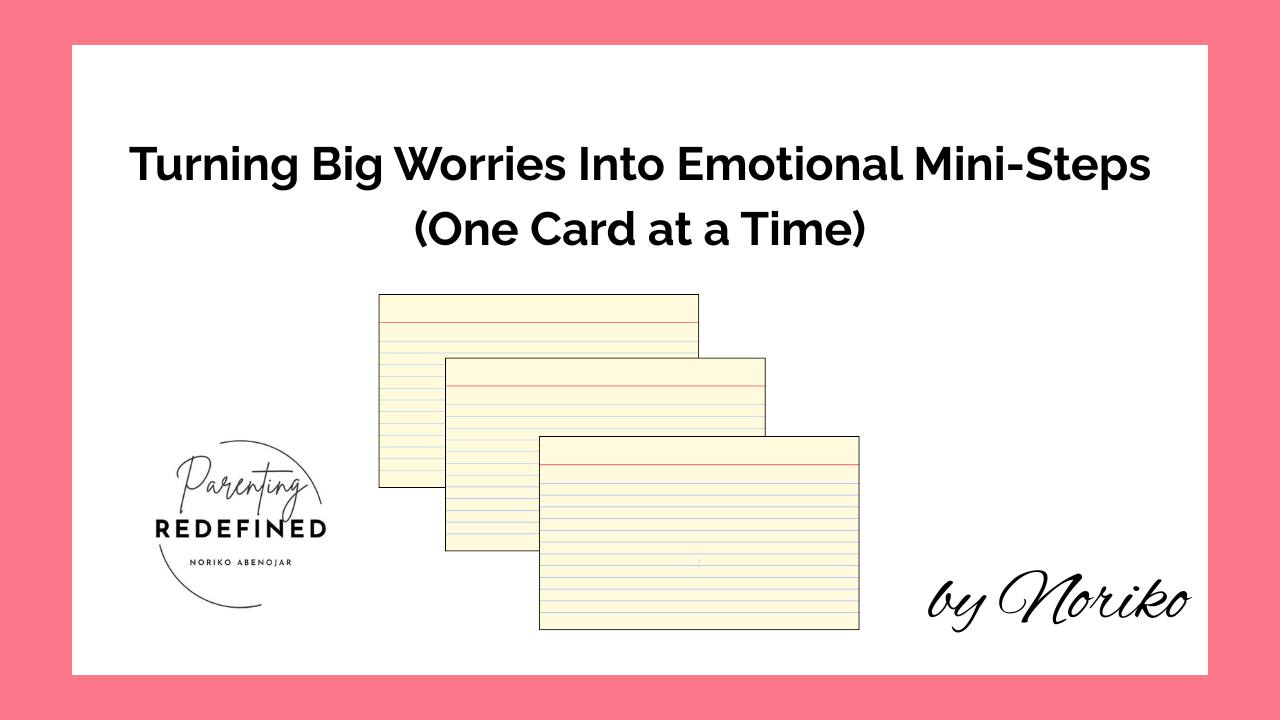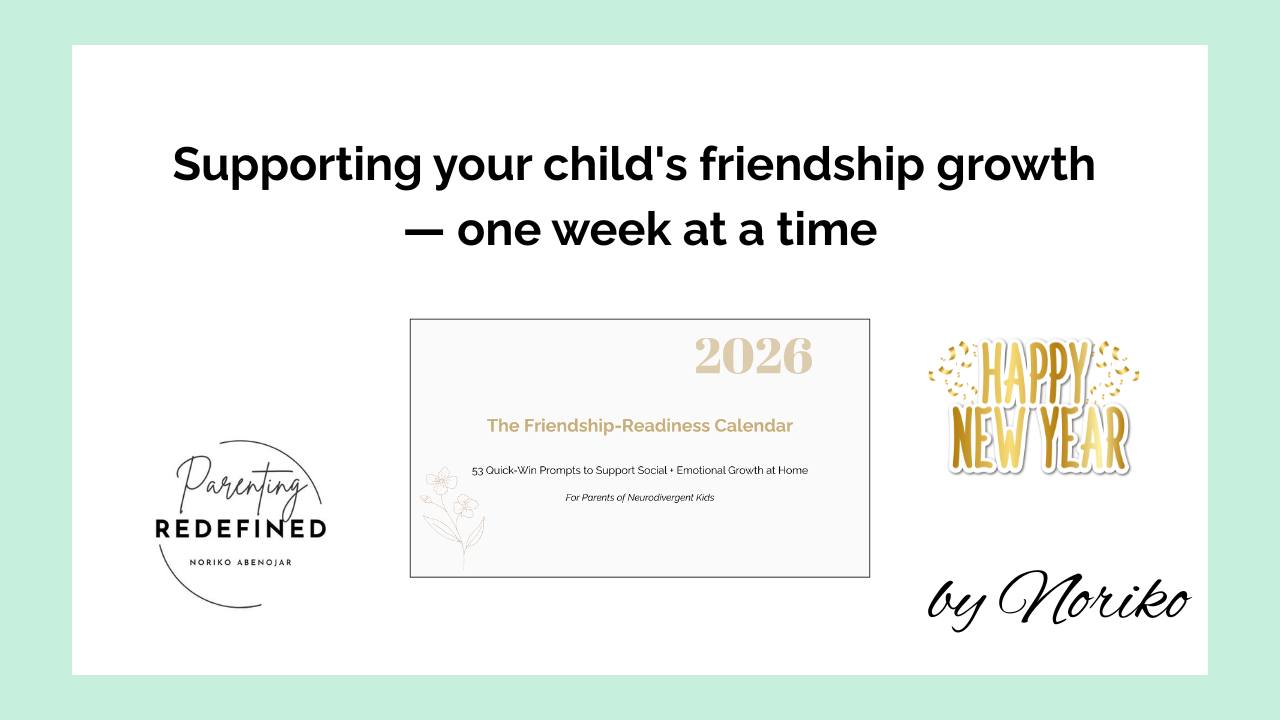2 Months into the school year---Let's do a friendship check!
Dear Parents,
It's hard to believe we're already two months into the new school year! I know that this time of year brings a mix of emotions, especially as we reflect on how our kids have adapted socially. For children with neurodivergence, the social landscape can be particularly challenging—and as parents, you may be noticing patterns, either positive or concerning, in your child’s friendships and interactions.
In many cases, the first two months of school offer enough experiences for patterns in social behavior to emerge whether it's navigating new friendships, struggling with social cues, or even facing difficulties in connecting at all.

This is a great time to pause, review the wins and the challenges your child has faced so far, and think about how to move forward. No need to think about goals for the entire year...think "clear and attainable mini-steps". The power is in making these mini-steps. Big end of the year goals can feel confusing, daunting, and have no concrete steps to take that your child can focus on. Successful social interactions not only require the actual skill but also the confidence that goes with having practiced the skills.
Let’s break it down by age group so you can reflect more specifically based on where your child is right now.
Elementary School Age Kids:
Laying the Foundation for Social Success
At this stage, your child is likely learning how to initiate and maintain friendships. The first two months of school might have been a whirlwind of new classmates and playground interactions. Some kids may have jumped into friendships with both feet, while others might be struggling to find their social footing.
Reflection Questions:
- Has your child made new friends or maintained old ones?
- Are they showing interest in group activities or isolating themselves more than before?
- Have there been any noticeable challenges in their social interactions, like misunderstanding non-verbal cues or struggling with emotional regulation when things don’t go as expected?
- Is the friendship helping each child make good choices for themselves?
Common Challenges:
- Fast friendships: Sometimes children form friendships that seem to progress very quickly. Without the right foundation, these friendships can fizzle just as fast. If your child dove headfirst into a friendship, it’s important to help them understand the different levels of friendships. Ask about how they’re feeling about these friendships now that some time has passed.
- Feeling left out: For those who haven’t made strong social connections yet, this can be a frustrating time. Talk with your child about what they are feeling and brainstorm together on small, manageable ways to reach out to others.
Middle School and High School Age Kids:
Navigating Complex Social Dynamics
Middle school can be a rollercoaster for any child, but for kids with ASD, ADHD, anxiety, or any other social challenges, it can feel especially overwhelming. Social interactions become much more subtle and fast leaving many kids confused and worried.
Reflection Questions:
- How has your child handled group projects or social settings like lunch hour?
- Have there been any conflicts with peers, or is your child withdrawing from social opportunities?
- Is your child experiencing anxiety or frustration when it comes to keeping up with more nuanced social interactions?
- Is your child often confused why other people are mad at them or distancing from them?
- Is your child starting to manage their own social calendars or responding to friend's invites?
Common Challenges:
- Kids in this age group often start communicating with each other on social media or texts. Kids who do not use these methods of communication or those who are reluctant to use them can end up being out of the social loop. This is not to encourage all parents to allow their kids to use social media or phones but it is definitely a factor to pay attention in this age group.
- Social withdrawal: Your child may have started the school year hopeful about new friendships but is now feeling discouraged if they haven’t made significant connections. Middle school social life can be daunting, and it can be common for kids to feel unsure of where they fit in. However, kids with neurodivergence may actually lack the skills for it, not just the confidence. It is important to identify this and give support when and where necessary.
- Opportunities to participate in organized social acitivities can significantly decrease at this age group. There are less summer camps geared towards teens and it becomes less socially appropriate for parents to set up 'hang outs' for the kids.
How to Move Forward: Key Tips for All Ages
-
Celebrate the Wins: Whether big or small, every social success is a step forward. Talk about the positive moments your child experienced—maybe they invited someone to play or had a successful group project.
-
Address the Challenges: It’s important to acknowledge struggles and encourage open communication about difficult social situations. Let your child know it’s okay to have challenges and that you’re there to help them navigate these moments. Help them develop a plan on how to develop these skills. Break down each step into small attainable steps rather than setting big goals that feel too overwhelming.
-
Stay Consistent: Social skills are like muscles—they need to be exercised regularly. Encourage ongoing practice at home through family activities, role/pretend play, and community involvement.
-
Keep the Conversation Going: Ask your child regularly how things are going socially. Are they feeling more comfortable? Are there kids they want to get to know better? Keeping this line of communication open will help you both navigate any challenges together.
As we move further into the school year, let’s continue to support our children in their social journey. Remember that progress looks different for every child, and taking the time to reflect now will help us guide them through the months ahead.
Warmly,
Noriko Abenojar, MSW, PPS
Parenting REdefined
Instagram: @NorikoAbenojar
Facebook: Parenting REdefined by Noriko Abenojar MSW PPS




